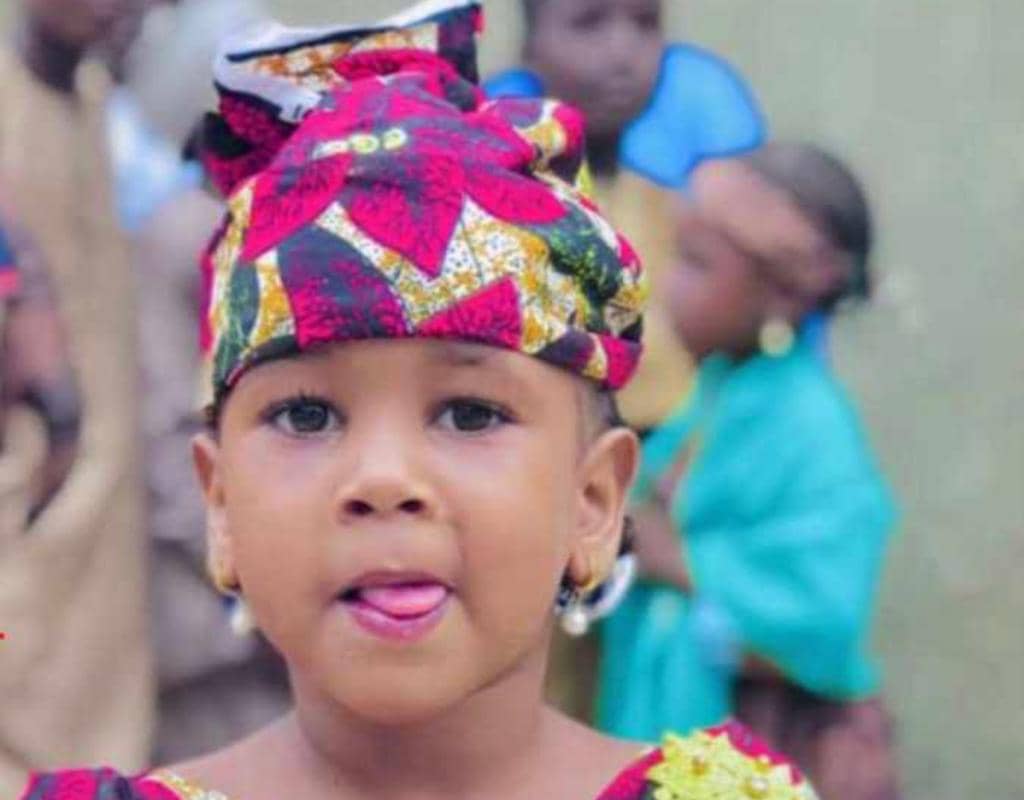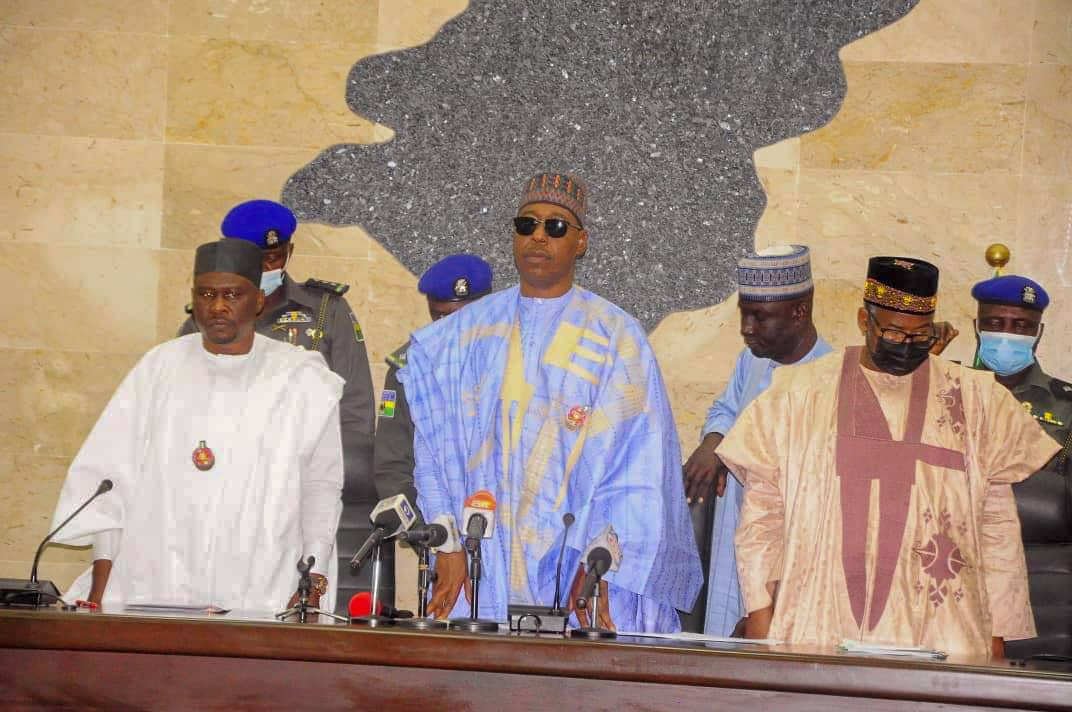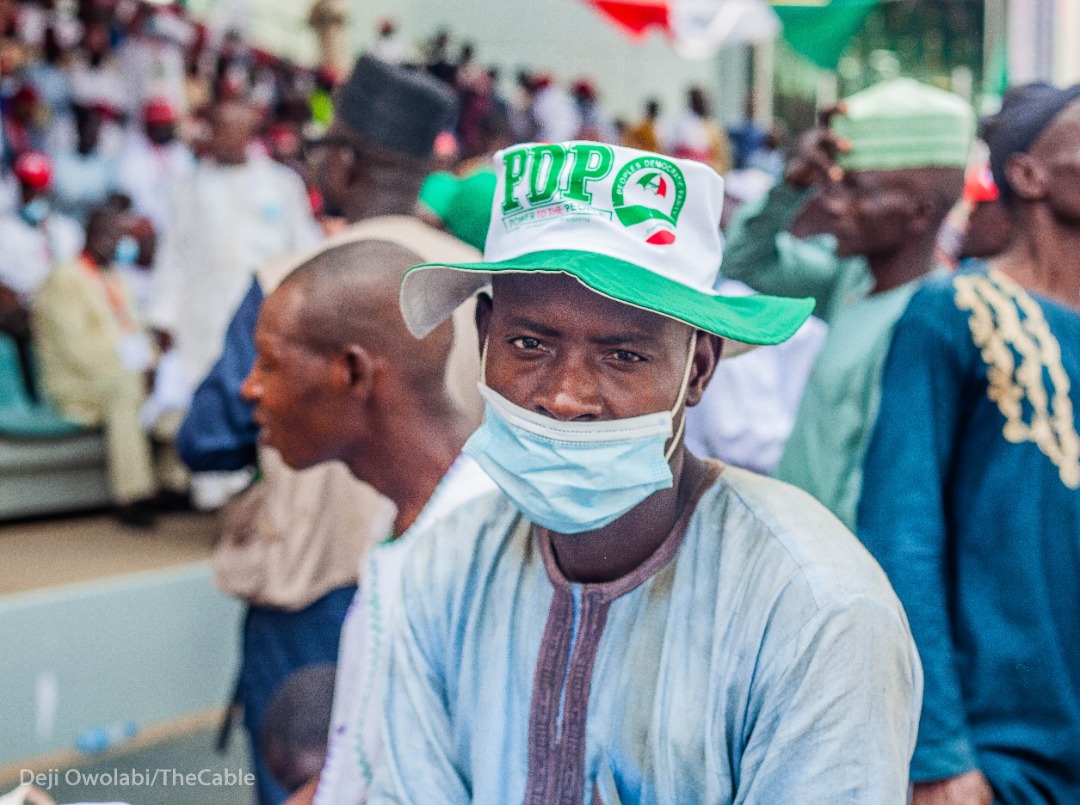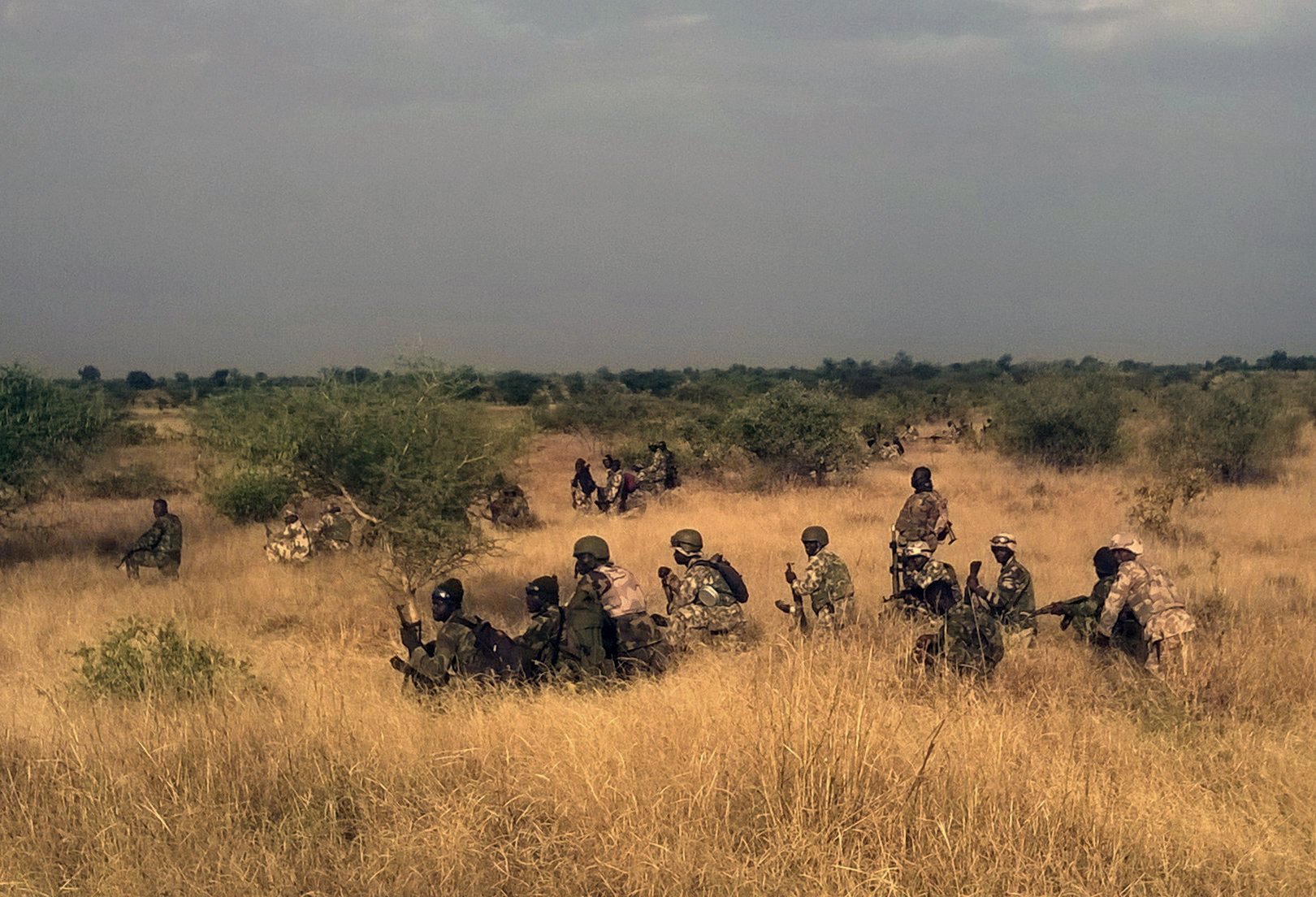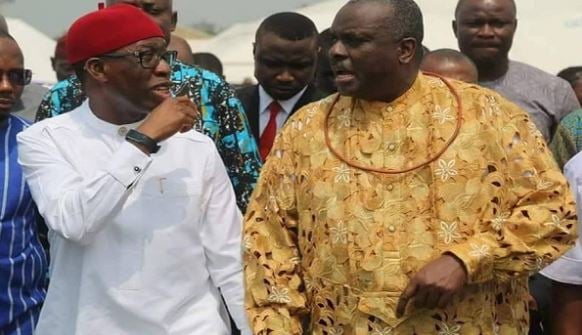BY ZAYD IBN ISAH
The gruesome murder of a five year-old girl, Hanifa Abubakar has quickly generated national outcry, throwing the country into mourning as news of her death broke across various social and news media platforms. One could even say that the deaths of over twenty passengers burned to ashes by bandits in Sokoto and other mindless killings in parts of the North never caused an uproar the like of which followed Hanifa’s.
Hanifa Abubakar was one of the pupils of Noble Kids Nursery and Primary School, a private school located in Kawana Dakata in Nasarawa local government area of Kano State in Tudunwada. She was abducted on 4 December last year by one Tanko Abdulmalik, the proprietor of the school she attended. According to a family source, Tanko Abdulmalik was among the first set of people who came to console the parents after abducting their daughter. The level of trust between the parents and the proprietors/teachers would make Tanko the very last on the list of those Hanifa’s parents suspected to have abducted their beautiful daughter, especially as the poor girl went missing under his custody. As the proprietor of the school, Tanko owed little Hanifa and other pupils in his school a duty of care. He did not only fail to discharge the duty of care he owed Hanifa, he violated her fundamental human rights to life, to dignity of human person and freedom of movement, all in the most despicable ways possible. Of course, Hanifa’s mind would have been too young to understand the very concept of constitutional rights, but it is not impossible to imagine the pain, fear and helplessness she suffered before she was murdered.
While being paraded before newsmen at the Kano Police Command Headquarters on Friday, January 21, Tanko gave a detailed confession to the crime. He said: “I picked her inside keke napep (local name for tricycle) and I carried her to my own house where I lied to my wife that the girl was the daughter of one of the women working in my school. And that the mother travelled and pleaded for us to keep the girl for some days. My wife accepted and kept the girl for that reason. I later realized that the girl’s parents were informed that when picking her up, she made mention of ‘uncleʼ. This gave me the impression that they might be suspecting me as the uncle. After some days, a few of the teachers visited my house very early in the morning and when they came, I feared that they were trying to find out if the girl was with me. That was on the fifth day after I kidnapped her. I decided that it was better I took certain measures to avoid being caught. I first thought of sending the girl to another state but again, I reasoned that the whole town was already aware of her disappearance. If the girl was going to be sent out through the main roads, I would be caught. That was when I conceived the idea of killing her. I picked her while she was asleep, around 11pm or thereabouts. I was drinking tea at that time, so I put some of it in an empty yoghurt bottle and added rat killer poison. When we went to the school, just as we were passing it, I told her that I was taking her back to her uncle’s house. On the way, I gave her the poisoned drink. She drank it immediately, just before we entered the school. As we entered, I told her I was going to pick something inside. She waited for me and that was where she finally died.”
Advertisement
Chuck Diers was once asked why humanity has failed over and over again. He said that it was because there is only a fine thin line that separates humanity from insanity, adding, “I’m surprised the human race is not extinct already. We are a violent species.” It doesn’t take a war to remind us of man’s inherent capacity for inhumanity, especially towards his fellow man. One can only imagine the pain Hanifa went through as the rat poison gradually wrecked havoc inside her. What do most little girls of Hanifa’s age want nowadays? Other than playing and eating and learning and being loved or cared for, these children want to be useful parts of the world they were brought into. Poor Hanifa. She must have dreamed of becoming a great person, must have considered several possible futures. And even if Hanifa did not ever enjoy daydreams of glory and joy, she still didn’t deserve to be subjected to such devious cruelty and pain. Especially by someone who ought to be her role model and protector. It is quite tragic that it was her school’s proprietor who ended her dreams, her life, her story.
Nigerians are already demanding for justice for Hanifa with the trending hashtag #JusticeForHanifa on social media. The Governor of Kano State, Abdullahi Umar Ganduje as well as the President of the Federal Republic of Nigeria have assured Nigerians that the perpetrators of the heinous crime will be brought to book. But there is one question everyone has failed to ask so far; will little Hanifa actually get the justice she deserves? Justice Chukwudifu Oputa gave a clear definition of justice while delivering his judgement in Josiah v. The State. He said: “Justice is not a one-way traffic. It is not justice for the appellant only. Justice is not even a two-way traffic. It is really a three-way traffic: justice for the appellant accused of a heinous crime of murder, justice for the victim, the murdered man, the deceased, whose blood is crying out to heaven for vengeance and finally justice for society at large— the society whose social norms and values had been desecrated and broken by the criminal act complained of.” Tanko Abdulmalik has desecrated and broken the social norms and values of this society by abducting and killing Hanifa after collecting part of the six million naira ransom he demanded. He has debased the sanctity of human life and as such, “justice must not only be done, but must also be seen to be done.” This dictum was laid down by Lord Hewart, the then Lord Chief Justice of England in the case of Rex v. Sussex.
With the alarming rates of kidnapping for ransom in Nigeria, some governors have taken further steps to combat the heinous crime by legislating death sentences for kidnappers. Abdullahi Ganduje of Kano State is among the governors that have taken this bold step. The Kano State Anti-Kidnapping Law states that “in a situation where someone is kidnapped and the victim died in the kidnapper’s custody, the penalty is death.”
Advertisement
Over the years, the subject of death sentence for perpetrators of heinous crimes such as rape, murder, armed robbery and kidnapping for ransoms has generated a lot of controversial debates between the government, civil society organizations and human right activists. Those who are opposed to it are of the view that death sentence for offenders of heinous crimes is morally reprehensible and has no deterrent effect.
Nigerian governors are apparently not interested in signing death warrants. At a special occasion to mark the 2013 Fathers’ Day organized by the Aso Villa Chapel, the then President, Goodluck Ebele Jonathan urged governors not to shy away from their statutory responsibility by not signing death warrants on condemned criminals. The Criminal Procedure Act of each state of the federation provides that governors should affirm death sentences of condemned criminals before execution. Only two governors—the former governor of Kano State, Ibrahim Shekarau and Governor Adams Oshiomole of Edo State have lived up to this statutory responsibility by signing into law the sentences passed by the court on some convicts, since the return to democracy in 1999. Interestingly, the former Governor of Osun State and the current Minister of interior stirred up a hornet’s nest at a public function last year after suggesting that governors should begin to sign death warrants in order to decongest the prisons. He said: “There are presently 3,008 condemned criminals waiting for their date with the executioners in our meagre custodial facilities. This consists of 2, 952 males and 56 females. In cases where an appeal has been exhausted and the convicts are not mounting any challenge to their conviction, the State should go ahead, to do the needful and bring closure to their cases.” This statement did not sit well with CSOs and human right lawyers who have been clamoring for the abolition of death penalty in Nigeria. The Minister was even accused of hypocrisy because as Governor of Osun State, he did not sign any execution warrant. Reacting to why governors are not interested in signing death warrants, the Programme Manager, Legal Defence Assistance Project (LEDAP)—Mrs. Pamela Okoroigwe said: “Nigeria is a very religious country. They don’t want to sign death warrants because they believe death penalty to be morally and religiously wrong. Some of them believe that life is sacred and since the state didn’t create life, why should it take life?”
I was fortunate to visit the Kano State Ministry of Justice as a law undergraduate with my colleagues. One of us asked the DPP why governors are reluctant in signing death warrant even when the Supreme Court in the locus classicus of Onuoha v. The State held that death penalty is not unconstitutional in Nigeria. In response, he said the governors are not happy with the law that mandated them to sign execution warrants instead of the judges that convicted them. In essence, the governors don’t want blood on their hands, even if it was condemned. And I remember that at this, some of us nearly burst into laughter. The DPP further pointed out that another problem facing death sentence in Nigeria is the problem of hangmen. Few Nigerians are ready to be executioners, with not many people showing interest the last time the services of hangmen was sought after in the country.
The controversies surrounding death sentence in Nigeria are needless. Although there have been global campaigns to abolish capital punishment totally, countries like China and even “God’s own country”—America, still very much practice it. Of course, Nigeria is a very religious country with numerous churches and mosques. Still, dark tendencies to commit heinous crimes remain quite rampant and high. And just when you think man’s cruelty to man cannot get any worse, something terrific like the murder of five year-old Hanifa happens, especially after Nigerians are still reeling from the gut punch of young Sylvester Oromoniʼs tragic demise. If we are to abolish capital punishment because Nigeria is a very religious country and death penalty should be abolished because it is morally and religiously wrong as Mrs. Pamela said, then how do you pacify parents whose only daughter suffers abduction and death at the hands of her school’s proprietor, especially after ransom was paid?
Advertisement
Death sentence is not unknown to the two major religions in Nigeria. My Christian brothers and sisters may argue that it existed before the coming of Jesus [A.S] and that he came with a message of love and forgiveness, but there are still versions of the New Testament that imply its appropriateness. For example, in Romans 13: 1-7, Paul calls his readers to submit to the authority of civil governments, reminding them that “if you do wrong, be afraid, for he [the authority] does not bear the sword for nothing.” Some have argued that the use of sword in that particular verse implies execution. Admittedly, death sentence may not stamp out heinous crimes like murder from the society, but they might just go a long way in pacifying the families of the victims as well as curbing the rising spate of jungle justice.
Those who are against death sentence alternatively call for life imprisonment on the basis that the offender might turn over a new leaf after spending some years in incarceration. But then, how assured is the possibility of the offender turning over a new leaf when our correctional facilities are not even corrective enough? We have seen where prisoners leave prisons after serving their jail terms, only to become more hardened, more devious and vicious. Will Hanifa’s parents be content to see Tanko back in the society after spending some years in incarceration? And how safe are these prisoners in our various correctional facilities across the country? In 2018, some gunmen attacked one of the prisons in Niger State and released more than ten condemned prisoners.
Our state governors should seriously consider putting sentiments aside in order to carry out their statutory duties without fear or favor. Section 33 [1] provides that, “Every person has a right to life, and no one shall be deprived intentionally of his life, save in execution of the sentence of a court in respect of a criminal offence of which he has been found guilty in Nigeria.” To argue that the exception to this section should be jettisoned because human life is sacred and no person should be deprived of his or her life no matter the circumstances is illogical. Was the victimʼs life not as precious as the offenderʼs?
As Nigerians look forward to the possibility of justice for little Hanifa, Governor Ganduje should not cow in the face of opposition to the death sentence law by various parties. Differing opinions abound, and they do not only present opportunities to consider alternative measures. They also make strong minds to solidify their authorised positions and do the justly needful—for the good of one and all.
Advertisement
#JusticeForHanifa
Zayd Ibn Isah writes from Ilorin. He can be reached via his email address: [email protected].
Advertisement
Views expressed by contributors are strictly personal and not of TheCable.
